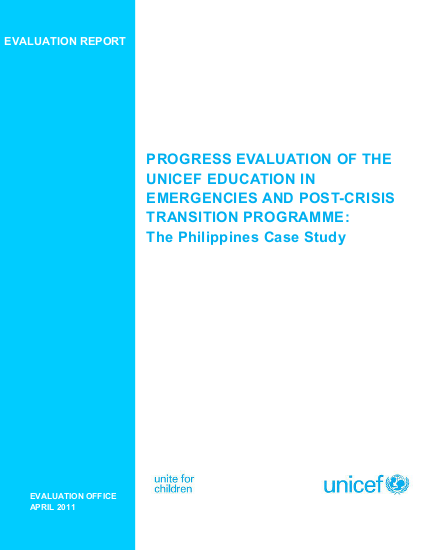
The United Nations Children‘s Fund (UNICEF) Education in Emergencies and Post-Crisis Transition (EEPCT) programme began in 2006 as a five-year, US$201 million dollar partnership between UNICEF and the Government of the Netherlands. It was intended as a strategic intervention in support of the Millennium Development Goals (MDGs) and the Education For All movement. The programme interventions associated with the EEPCT have been designed to achieve these targets by increasing institutional capacity and providing direct programme support. Global initiatives such as Inter-agency Education Clusters and the Inter-agency Network for Education in Emergencies are supported through programming in 39 countries.
The Philippines is one of the most disaster-prone countries in the world, experiencing typhoons and tropical storms, earthquakes, landslides and volcanic eruptions. Typhoons in particular effect the Filipino population on a repeated basis, with an average of some 20 typhoons a season, five or six of which cause significant damage. In 2006, the country experienced a particularly difficult and damaging typhoon season, culminating with Super Typhoon Reming, which hit the east coast, killing nearly 1,000 people and displacing more than one million. The equivalent of one month of rain fell within 12 hours, triggering mudslides and flash floods. In addition to natural disasters, certain regions within the Philippines face instability from armed groups and conflicts.
